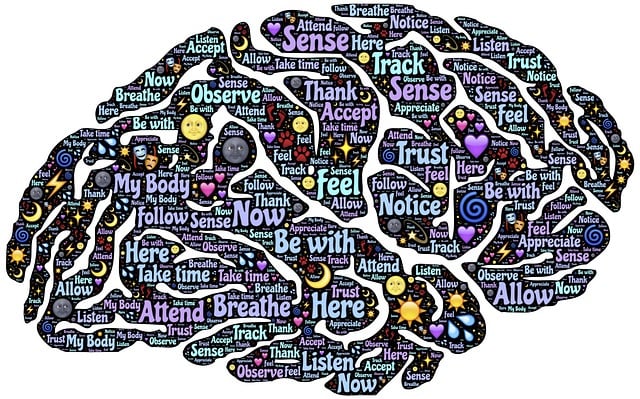Broomfield Major Life Transitions Therapy emphasizes the vital role of self-care during significant life changes, ensuring physical, mental, and emotional well-being. Through tailored strategies, individuals learn to manage stress, boost self-esteem, and develop coping skills for resilience. Recognizing personal needs is key; therapy guides clients through introspection and self-awareness exercises to identify triggers and set healthy boundaries. Integrating daily self-care practices, such as exercise and mindfulness, reduces stress levels and enhances overall well-being. Post-therapy, sustained success requires measuring improvements and maintaining new habits, utilizing tools like meditation and wellness podcasts for ongoing mental wellness.
Self-care is not a luxury, but an essential practice for maintaining overall well-being. In today’s fast-paced world, understanding and prioritizing self-care has become more critical than ever. This article explores various strategies to enhance your self-care routine, focusing on the transformative power of Broomfield Major Life Transitions Therapy. From recognizing personal needs to integrating self-care into daily life, we’ll guide you through a holistic approach to achieving long-term well-being.
- Understanding Self-Care: The Foundation of Well-being
- Broomfield Major Life Transitions Therapy: A Holistic Approach
- Identifying Personal Needs: Taking the First Step
- Strategies for Integrating Self-Care into Daily Routine
- Measuring Success and Sustaining Long-term Practices
Understanding Self-Care: The Foundation of Well-being

Self-care isn’t just a trend; it’s a fundamental practice essential to our overall well-being. At its core, self-care involves attending to one’s physical, mental, and emotional health in a way that promotes growth and resilience. This can range from simple acts like getting enough sleep and eating nutritious meals, to more proactive measures such as engaging in hobbies, spending time in nature, or seeking professional support when needed.
Understanding self-care is particularly crucial during major life transitions, which can include everything from career changes to personal milestones or traumatic events. Broomfield Major Life Transitions Therapy, for instance, offers valuable insights and strategies to navigate these challenging periods. By prioritizing self-care, individuals can better manage stress, enhance their self-esteem improvement, and even prevent conditions like depression. A comprehensive risk assessment for mental health professionals can guide them in identifying at-risk clients and providing appropriate support, ultimately fostering a healthier and more resilient community.
Broomfield Major Life Transitions Therapy: A Holistic Approach

Broomfield Major Life Transitions Therapy offers a holistic approach to improving self-care practices during significant life changes. This therapy recognizes that major transitions, such as moving, changing careers, or dealing with personal loss, can lead to heightened stress levels and anxiety. By focusing on the interconnectedness of physical, emotional, and mental well-being, Broomfield Major Life Transitions Therapy helps individuals develop effective coping skills and enhance their ability to navigate these challenges.
The holistic nature of this therapy involves incorporating various techniques like communication strategies and mindfulness exercises tailored to each individual’s unique needs. Through these methods, clients gain a deeper understanding of their triggers and learn powerful tools for Anxiety Relief. Furthermore, Broomfield Major Life Transitions Therapy encourages the development of strong coping skills, enabling individuals to adapt more effectively to life’s twists and turns while maintaining overall balance and resilience.
Identifying Personal Needs: Taking the First Step

Identifying Personal needs is the foundational step in enhancing self-care practices. It’s like navigating a labyrinth—you can’t find your way out if you don’t know where you are starting. Many people often overlook their own emotional and physical requirements, especially during major life transitions. Broomfield Major Life Transitions Therapy offers valuable resources for individuals seeking to better understand themselves. Through one-on-one sessions or group support, clients can learn to recognize triggers, set healthy boundaries, and prioritize tasks that promote well-being.
This process involves introspection and self-awareness. It might include identifying sources of stress, recognizing recurring patterns of behavior, or understanding individual needs for relaxation and rejuvenation. By taking the time to reflect and assess, individuals can begin to tailor their self-care routines to address specific concerns, whether it be managing anxiety through stress management workshops, prioritizing mental health policy analysis and advocacy, or finding anxiety relief.
Strategies for Integrating Self-Care into Daily Routine

Integrating self-care into your daily routine is a crucial aspect of navigating life’s challenges and transitions, as recommended by Broomfield Major Life Transitions Therapy. It’s easy to get caught up in the hustle and bustle of everyday life, leading to burnout and decreased well-being, especially for healthcare providers who often face high-stress situations. Therefore, adopting intentional self-care practices is a proactive approach to maintaining balance.
Start by identifying activities that nurture your mind, body, and soul. This could include dedicated time for exercise, meditation, or hobbies. For instance, setting aside 30 minutes each morning for stretching and mindfulness can significantly reduce stress levels throughout the day. Additionally, prioritizing quality sleep, healthy eating, and social connections forms a solid foundation for self-care, enhancing your resilience to life’s ups and downs, including Burnout Prevention Strategies for Healthcare Providers. Building strong inner strength through Self-Esteem Improvement techniques will also empower you to persevere during challenging transitions.
Measuring Success and Sustaining Long-term Practices

Measuring success and sustaining long-term self-care practices are pivotal aspects of holistic well-being, especially during and after Broomfield Major Life Transitions Therapy. While initial improvements may be evident, such as reduced stress levels or enhanced emotional regulation, true success lies in maintaining these gains over time. This involves not just adopting new habits but integrating them into one’s daily routine and lifestyle.
Regular reflection and tracking of mental wellness through practices like Mindfulness Meditation can serve as powerful tools. Additionally, engaging with a Mental Health Policy Analysis and Advocacy community or listening to Mental Wellness Podcast Series Production can provide ongoing support and inspiration. These strategies collectively contribute to fostering resilience, ensuring that individuals not only overcome challenges but also thrive in their pursuit of sustained mental wellness.
Incorporating self-care practices into your life can seem daunting, but with strategies like those offered by Broomfield Major Life Transitions Therapy, it becomes a manageable and rewarding journey. By understanding the importance of self-care, identifying personal needs, and integrating these practices into daily routines, individuals can achieve lasting well-being. Measuring success along the way ensures consistent improvement, fostering a holistic approach to mental and emotional health.














